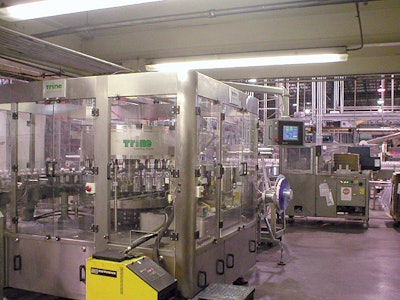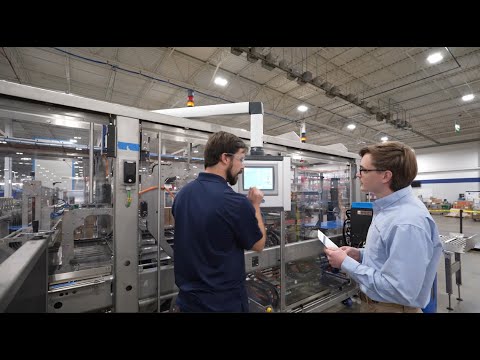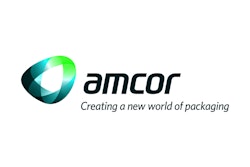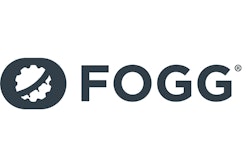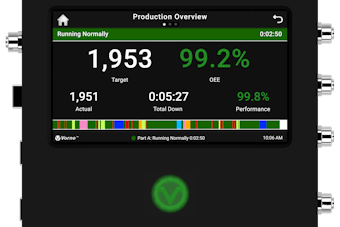Music Mountain Water Co. of Shreveport, LA, bottles its own-brand spring water straight from the Wilderness Valley Spring in Arkansas’s Ouachita National Forest. MMW also does its share of private-label packing.
To respond to growing market demand for its branded and private-label products, MMW installed a completely new bottling line in the spring of this year. The new line includes a rinser/filler/capper from Fogg Filler Co.; conveyors from Alliance Industrial Corp.; line integration engineering from Vinton Packaging Group; and a new Universal Rotary glue-applied roll-fed labeler from Trine Labeling Systems. Secondary packaging equipment includes a Dimac 60 bundler from Aetna Group, and a used Hartness case packer refurbished for the line by Hartness. The line runs PET bottles, in six sizes, supplied by Amcor PET. Polyethylene caps are also from Amcor, while oriented polypropylene labels are from Paco Label Systems.
Choosing labeling equipment that could run at high speeds while also allowing fast changeovers from one bottle size to another was a crucial component of the project. For about four years, Music Mountain had been running a Model 4500 Quick Change labeler manufactured by Trine, and management was pleased with its overall operation, including the quick, easy changeover capability that averted costly downtime. But the new line had to run faster than 350 bottles/min, the speed at which MMW ran its 4500 system. Space considerations were also important, says MMW president Marcus Wren III.
“Based on our evaluation of available labeling equipment, cost comparisons, and our good history with Trine, we selected a high-speed Trine Universal Rotary labeler model for the new bottling line,” says Wren. “It has compact dimensions of six feet by eight feet and stands 82 inches high, so it fits well into the floor space we could allot to the labeling equipment.”
Like the Model 4500, the new Trine labeler cuts individual labels from a roll and transfers them to a vacuum drum. The drum rotates past a glue wheel that applies glue to the leading and trailing edges of the label. As the leading edge contacts a bottle being conveyed past, the label leaves the vacuum drum and is wrapped around the bottle.
Easy changeover
The labeler is easy to change over, too. This was crucial in the installation at MMW, where a bottle size change is made at least once every 36 hours, sometimes more frequently.
“The 4500 took 30 minutes for one person to change over,” says Wren. “The Universal Rotary takes 45 minutes if the bottle diameter stays the same and 90 minutes if the diameter changes. But this is far better than the three to four hours downtime needed to accomplish changeovers on some other rotary systems that we looked at.”
Music Mountain’s new bottling line is running smoothly two shifts daily and achieving speeds to nearly 600 bpm for 8-oz bottles, MMW’s smallest size. Even the largest size, a 1.5-L bottle, runs at 285/min.
Label placement is accurate to within ± 1/16”, says Wren. He cites on-site training and assistance by Trine technicians as extremely helpful to the successful start-up. He notes that the rotary labeler is operator-friendly with touch screen control and that maintenance is made easier by the presence of access doors on all sides of the stainless steel-clad machine.
“When any new machine is installed, proper training is critical,” says Wren. “Trine offered extended service and training. And because the design of the label cutter and hot-glue system on the new labeler is very similar to the 4500, our staff had a shorter learning curve. We are pleased with the new system. It’s meeting and exceeding our expectations.”
Wren likes that if he ever decides to add non-round bottles to the repertoire, the Trine Universal Rotary labeler can adapt to various bottle shapes and can be outfitted to run pressure-sensitive labels as well as the hot-glue, roll-fed labels.
Considering how steadily the bottled-water market continues to grow and change, having such options is a very good thing, says Wren. —PR
